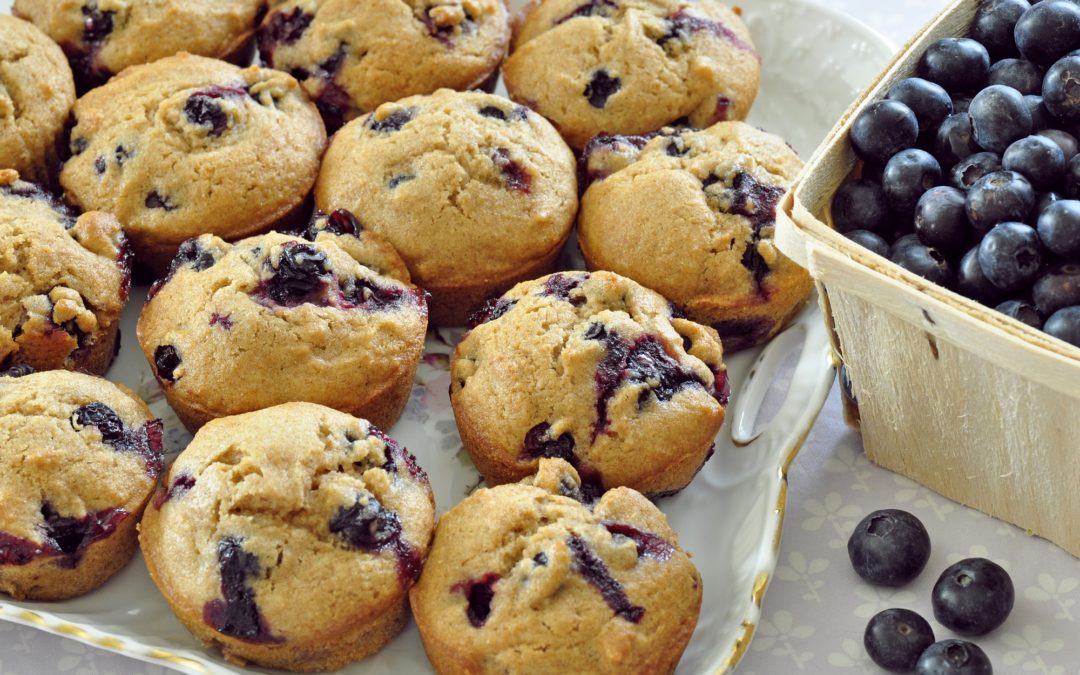By Regina Contini, OSU Dietetic Intern
What motivates your food choices? If you are like most, you would say you choose the foods you choose because of taste, calories, convenience and because you want to be healthy. Brain health isn’t usually a top reason, but perhaps it should be. Whether or not we realize it, the foods we choose affect our brain.
Most people know that healthy eating is important to reduce the risk of chronic illness, but don’t also realize that it is important to protect against strokes, cognitive and neurological diseases, and also to promote mental health. A healthy brain can help us be happy, motivated, optimistic and clear headed.
For optimal brain health, consider eating these foods often:
- Blueberries are rich in antioxidants that prevent oxidation of LDL cholesterol, which clogs arteries and reduces oxygen-rich blood flow to the brain. Research has shown that regular consumption of blueberries can improve brain function and delay the onset of cognitive decline. Enjoy fresh or frozen blueberries by the handful or in a yogurt parfait.
- Nuts and seeds contain healthy fats and vitamins. Walnuts and flaxseeds contain omega-3 fats that decrease inflammation and triglycerides. Almonds and seeds contain vitamin E, an antioxidant that protects brain cell membranes. Have a handful of nuts each day or a spoon full of nut or seed butter.
- Whole grains contain B vitamins that prevent homocysteine accumulation in the blood. High homocysteine levels contribute to cardiovascular disease. Try a nut butter on a slice of whole grain bread.
- Fish, especially salmon, contain the brain-healthy omega-3 fats that optimize the nervous system and cognitive function. Have a small piece of fish twice a week.
Foods that are unhealthy for the brain also contribute to heart disease and diabetes. These foods should be sometimes foods.
- Refined sugar is found in soda, energy drinks, juice cocktails, sports drinks, cookies, cakes, pastries and candy. Sugar itself is not bad for the brain, in fact it is the brain’s primary source of fuel. Too much sugar is the concern. Consuming foods high in sugar can damage your nerves and arteries and lead to diabetes. The next time you have a sweet tooth, try satisfying it with fruit. Fruit has a reasonable amount of sugar and also has lots of healthy vitamins and fiber.
- Refined grains like white rice and white flour, are missing the fibrous bran layer and vitamin E-rich germ, leaving simple carbohydrate known as starch. Starch turns into sugar in the body and has similar negative impacts. Try brown rice, and whole wheat pasta, tortillas, rolls and bread.
- Fast food tends to be high in refined sugar and refined grains. If you go, choose the healthier options that many now offer. Try fresh deli salads from the grocery store for convenience or make a simple meal at home.
Some may say that a healthy heart is a healthy brain. A heart-healthy diet similarly promotes brain health. The DASH diet and ChooseMyPlate are helpful guides to get you started or recharged with healthy eating. These diets enforce regular consumption of whole grains, vegetables, fruits, nuts, fish and low-fat dairy.
Try these delicious and easy-to-make muffins to satisfy your sweet tooth, but also to get whole grains.
Whole Wheat Blueberry Muffins
Recipe from www.foodhero.org
Ingredients
1 1⁄2 cups whole wheat flour
3⁄4 cup sugar
1⁄2 teaspoon salt
2 teaspoons baking powder
1⁄3 cup vegetable oil
1 egg, slightly beaten
1⁄3 cup nonfat or 1% milk
1⁄2 cup unsweetened applesauce
2 cups blueberries (fresh or frozen)
Directions
- Preheat oven to 400 degrees. Lightly coat the bottom of 12 muffin cups with oil or baking spray.
- Mix the flour, sugar, salt and baking powder in a large bowl.
- In a separate bowl, blend vegetable oil, egg, milk and applesauce until smooth. Stir the liquid ingredients into the flour mixture until just moistened. Lightly stir in the blueberries.
- Fill each muffin cup about 3/4 full.
- Bake about 20 minutes, or until the muffin tops are golden brown. A toothpick inserted into the center of the muffin should come out moist but without batter.
Nutrition information: 1 muffin
180 Calories, 7 grams fat, 1 gram saturated fat, 170 mg sodium, 28 grams carbohydrate, 16 grams sugar, 3 grams fiber, 3 grams protein,

